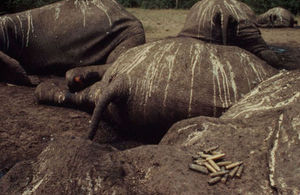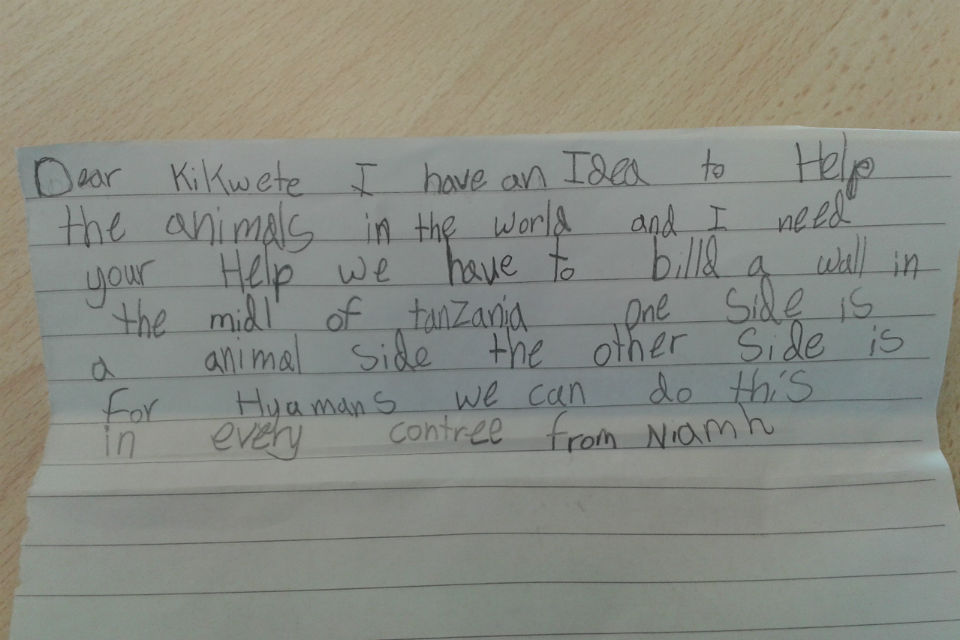World faces wildlife crisis: article by UK Minister for Africa
An op-ed by UK Minister for Africa Mark Simmonds on the illegal wildlife trade that has become a global criminal enterprise.

Poached elephants
We’re facing a crisis. A rhino is killed by a poacher every ten hours and fewer than 3,500 tigers are left in the wild. This is not simply an environmental problem. With 25,000 elephants poached in 2011 and 22,000 in 2012, the illegal wildlife trade has become a global criminal enterprise, with the power and reach to halt economic development, drive conflict, sustain terrorist groups and mire the poorest people in poverty.
Poaching devastates communities across Africa, especially those parts of the continent facing the worst aspects of the poaching crisis. There is vital work going on every day across the continent to respond, from groundbreaking conservation efforts in Namibia or experiments with the latest technologies in Kenya. This work exacts a terrible toll; over 1000 park rangers have been killed in the last 10 years. Africa is leading the political response, with the steps taken at the African Elephant Summit in Botswana last December and the efforts of Gabon to raise this at the United Nations. The leadership shown by Botswana, Gabon and others is exactly what is needed to confront the problem and put an end to it.
But poaching and the illegal wildlife trade are global concerns. The illegal wildlife trade is now a serious criminal industry, worth billions, and has the potential to destabilise regions and threaten sustainable development. We must not leave Africa to face this problem, unsupported. We must all face the repercussions of wildlife crime, from money laundering to destruction of livelihoods.
The UK is committed to playing our role in helping to stop this trade and solve these issues. It is our responsibility to support the leadership that countries in Africa and elsewhere are showing on the issue. We have recently adopted a cross-government action plan to tackle the illegal wildlife trade. We have also announced new funding of £10 million for projects aimed at tackling poaching and the illegal wildlife trade and will release details soon on how we will spend these funds.
On 13 February the UK will host governments from across Africa, Asia, America and Europe to galvanise international action. Tanzania will be one of the best represented countries with HE President Kikwete, Foreign Minister Hon Membe and Minister of Natural Resources and Tourism Hon Nyalandu attending. This is fantastic and a strong indication of the seriousness with which Tanzania is taking the problem of poaching. Minister Nyalandu on 8th January this year said: “Given the gravity of the poaching problem facing Tanzania today, the government is committed to go the distance to fight and defeat poaching.”
The focus of the London conference will be on improving law enforcement to catch and punish those responsible; supporting the development of sustainable livelihoods in areas affected by wildlife crime; and reducing demand for wildlife products, because demand for these products is what drives the trade.
We hope that the governments at the London Conference will join us in setting out the highest political commitment ever to tackling wildlife crime and helping those states affected to fight back. From improved law enforcement to working with local communities there is plenty of work to do, and we are keen to get started. We simply cannot wait – because, if we do, it will be too late to save these iconic species. And if, together, we cannot save them then we will face a real uphill struggle to protect other lesser-known species from the same fate.

Letter to President Kikwete from a six year old British girl, Niamh McGeever, daughter of a DFID colleague.